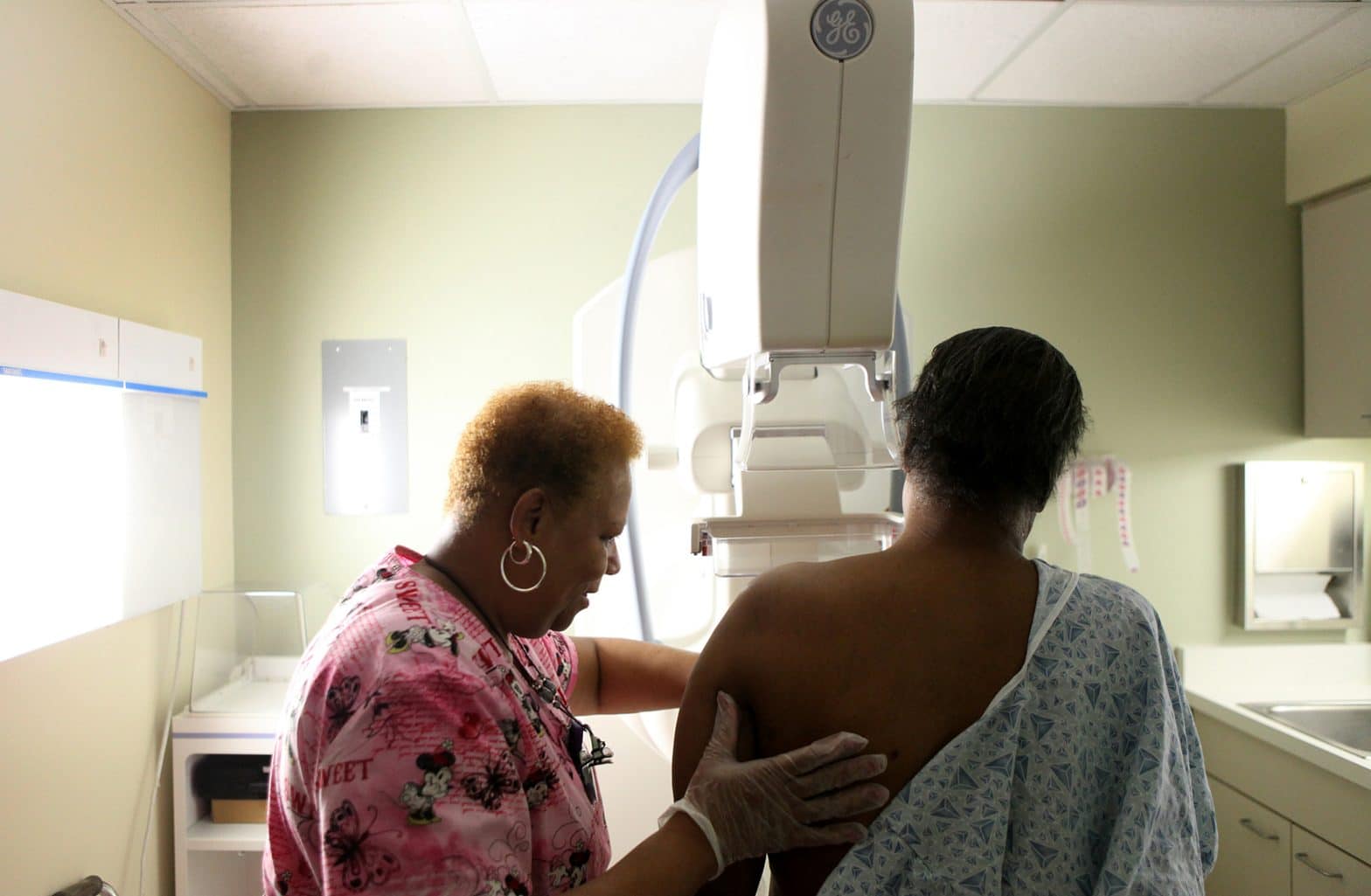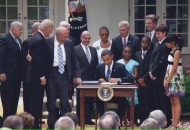Breast Cancer, Health Disparities and the COVID Cancer Effect
COMMENTARY

The COVID-19 pandemic cut global breast cancer screening rates in half in 2020, according to a study released in JAMA Oncology in July.
A “COVID cancer effect” has wreaked havoc on cancer detection, further compounding existing health disparities — and possibly signaling a significant increase in the number of avoidable cancer deaths in the future.
Breast cancer is the most common cancer worldwide and is the second leading cause of death for women in the United States. Yet breast cancer doesn’t impact all communities in the same way. Despite having similar rates of breast cancer, Black women in the United States are more likely than White women to die of the disease, due to a range of social, economic, political and environmental factors that contribute to an individuals’ health conditions, as well as disparities in access to screening, follow up care and treatment. Black women are also disproportionately affected by more aggressive subtypes, such as triple-negative breast cancer.
During the pandemic, fear of the virus kept many out of doctor’s offices and hospitals, leading to widespread postponement of screenings, surgeries and routine care. It is estimated that almost 10 million people skipped cancer screenings between March and May of 2020, and many more in subsequent waves. The pandemic also exacerbated factors that impact motivation or ability to seek cancer screening and treatment in underserved populations, such as limited transportation options or fear of losing a paycheck for missed work time.
As a result of COVID-19, screenings for cancers of the breast, colon and cervix dropped by approximately 94%, 86% and 94% respectively between Jan. 20, 2020, and April 21, 2020.
Last month a national poll conducted by AmyLev Strategies and HarrisX of 1,001 people revealed 32% of Americans delayed medical care due to COVID-19 and 58% of the women who did, delayed breast cancer screening. Latin women were the most likely to delay their screening as were women in households where the annual income is under $75,000.
Creative, proactive efforts are needed to address the complex challenges we face in cancer screening during a pandemic.
At the Brem Foundation to Defeat Breast Cancer we’re using a combination of education, access programs and advocacy to help women advocate for their own health and to increase access to essential screening and diagnostic services, many of which are out of reach for low-income populations. Our “Wheels for Women” partnership with Lyft is the country’s first and only free transportation program dedicated exclusively to breast cancer screening and diagnostics.
The program opens doors for women to get the care they need and deserve — building upon close partnerships with patient navigators at local medical partners, to identify patients in need and arrange rides, so that transportation is not a barrier to care.
Through our “B-fund” program, Brem partners with local health providers and breast imaging centers to identify gaps and provide funding for costly breast diagnostic tests for women who cannot cover them on their own — fighting for every woman to get the care she needs and deserves, regardless of her ability to pay. Similar efforts are needed at the federal level.
In February, as part of the reignited Cancer Moonshot, President Biden and First Lady Jill Biden announced a call to action on cancer screening to jump-start progress on the 10 million missed screenings due to the pandemic, and to work to ensure that all Americans equitably benefit from existing tools to prevent, detect and diagnose cancer.
This prioritization of screening at the federal level is indeed an encouraging step. We’ve learned over the last 20 years that early detection of breast cancer, particularly when it’s small and has not spread, saves lives. Screening could substantially reduce cancer incidence and mortality rates in patients.
Strategic collaboration among government, corporations, the health care community and the nonprofit sector is essential. The American Cancer Society estimates that this year approximately 287,850 new cases of invasive breast cancer will be diagnosed in women, and, of these, 43,250 women will die.
While we don’t know the full extent, pandemic related reductions in screening could result in thousands of additional deaths from breast cancer in the next 10 years. Just how significant the impact will be is dependent on how quickly stakeholders pivot and work across disciplines to find solutions to ensure patients, providers and health systems have the tools and means necessary to make up for the COVID cancer effect and make screening a top priority, particularly for our most underrepresented communities.
Cancer screening has been part of the collateral damage of the COVID pandemic — we must act now to change that narrative and in the process, save millions of lives.
Clare Dougherty has worked at the intersection of public policy, communications, and mission-driven leadership for the last 25 years, focusing on the health and well-being of women and children. Prior to joining the Brem Foundation to Defeat Breast Cancer, Clare spent over 15 years at the Elizabeth Glaser Pediatric AIDS Foundation, working to promote, enhance, and protect the organization’s global brand reputation, while building stakeholder and donor support for its mission to end AIDS in children, youth, and families.
During her tenure at EGPAF, Clare also held senior positions in Public Policy & Advocacy and the Office of the President, advancing major legislative priorities and driving Board engagement. Clare has served as director of International Programs at the Campaign for Tobacco-Free Kids and as deputy chief of staff on Capitol Hill. She holds a master’s degree in Urban Affairs and Planning from Hunter College and a bachelor’s degree in Communication from Boston University. You can reach her by email here or via LinkedIn.























